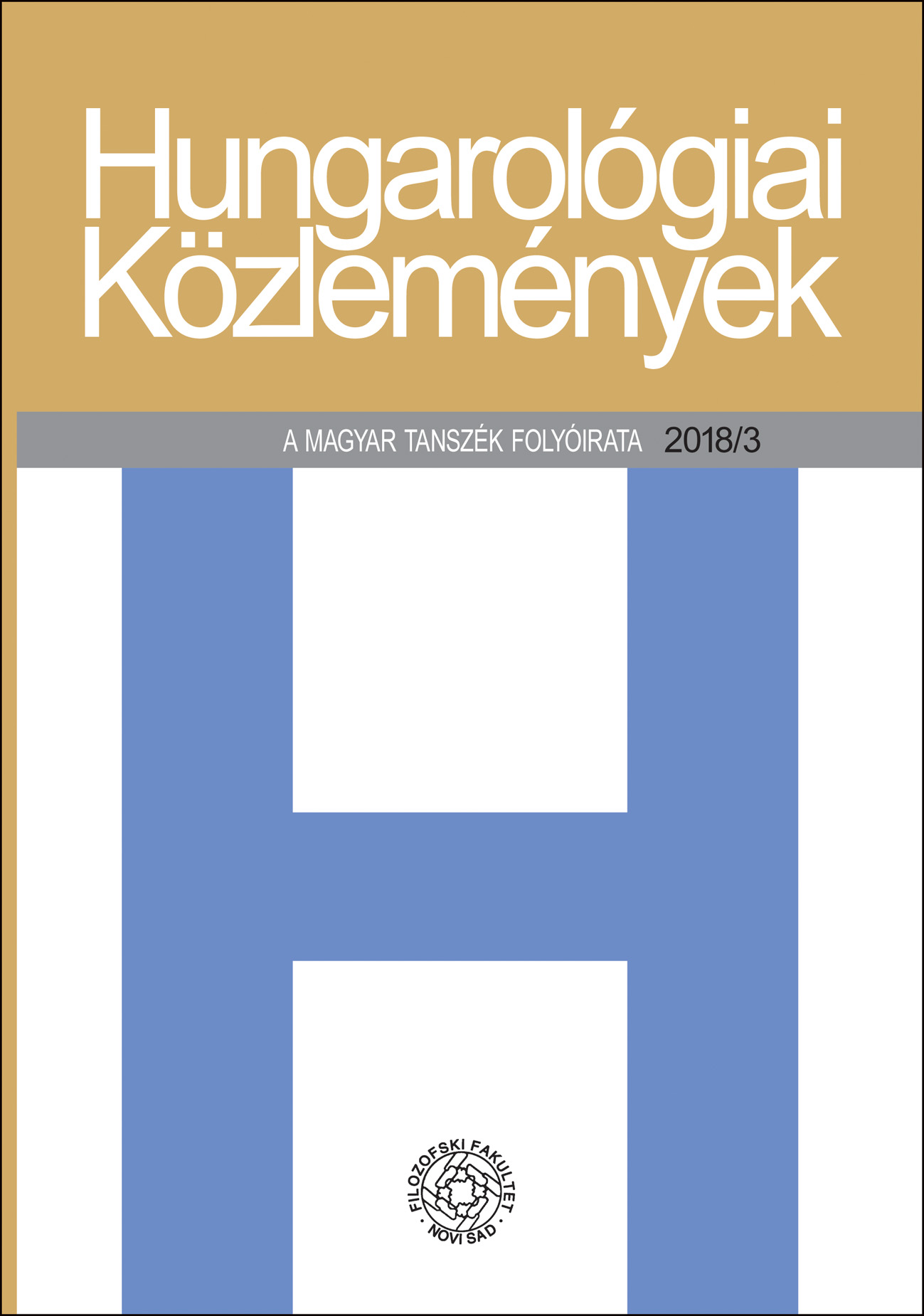AZ EMPÁTIA JELENSÉGE ÉS VAJDASÁGI JELLEGZETESSÉGEI
Absztrakt
A tanulmány az empátia jelenségét és néhány ehhez kapcsolódó elméleti nézőpontot és fogalmat taglal. Az eddigi eredmények nemi eltérést mutatnak az empátia és a rendszerezés képességében: a nők többsége inkább empatikus, a férfiak pedig rendszerező elmével rendelkeznek Simon Baron-Cohen szerint. E vonalat követve mutatja be a munka az empátia (és a rendszerezés fogalmát), valamint az empátia mérésére ma gyakran alkalmazott módszereket is taglalja. Az empátiával kapcsolatos nemi különbségekre vonatkozó kutatási eredmények összegzése a további vizsgálódások előfeltétele. A tanulmány mindennek fényében kitér a magyar nyelvterületről származó, részben vajdasági eredményekre is, amelyek szintén alátámasztják az eddigi nemzetközi felismeréseket az empátia nemi alapú különbségeivel kapcsolatban.
Hivatkozások
Baron-Cohen, Simon. 2002. The extreme male brain theory of autism. Trends in cognitive sciences 6 (6): 248–254.
Baron-Cohen, Simon. 2006, 2003. Elemi különbség. Férfiak, nők és a szélsőséges férfiagy. Budapest: Osiris Kiadó.
Baron-Cohen, Simon–Richler, Jennifer–Bisarya, Dheraj–Gurunathan, Nhishanth–Wheelwright, Sally. 2003. The systemizing quotient: an investigation of adults with Asperger syndrome or high–functioning autism, and normal sex differences. Philosophical Transactions of the Royal Society of London B: Biological Sciences 358 (1430): 361–374.
Baron-Cohen, Simon–Wheelwright, Sally. 2004. The empathy quotient: an investigation of adults with Asperger syndrome or high functioning autism, and normal sex differences. Journal of autism and developmental disorders 34 (2): 163–175.
Baron-Cohen, Simon–Wheelwright, Sally–Jolliffe, A. Therese. 1997. Is there a „language of the eyes”? Evidence from normal adults, and adults with autism or Asperger syndrome. Visual cognition 4 (3): 311–331.
Baron‐Cohen, Simon–Wheelwright, Sally–Hill, Jacqueline–Raste, Yogini–Plumb, Ian. 2001a. The “Reading the Mind in the Eyes” test revised version: A study with normal adults, and adults with Asperger syndrome or high‐functioning autism. Journal of child psychology and psychiatry 42 (2): 241–251.
Baron-Cohen, Simon–Wheelwright, Sally–Spong, Amanda–Scahill, Victoria–Lawson, John. 2001b. Are intuitive physics and intuitive psychology independent? A test with children with Asperger Syndrome. Journal of Developmental and Learning Disorders 5 (1): 47–78.
Billington, Jac–Baron-Cohen, Simon–Wheelwright, Sally. 2007. Cognitive style predicts entry into physical sciences and humanities: Questionnaire and performance tests of empathy and systemizing. Learning and Individual Differences 17 (3): 260–268.
Buda Béla. 1978. Az empátia – a beleélés lélektana. Budapest: Gondolat.
Dewaele, Jean-Marc–Wei, Li. 2012. Multilingualism, empathy and multicompetence. International Journal of Multilingualism 9 (4): 352–366.
Gál Zita. 2015. A tudatelmélet életkori különbségei, kapcsolata a munkamemória kapacitással és a társas pozícióval. Doktori disszertáció. 1–175. Szeged: Szegedi Tudományegyetem.
Lawrence, E. J., Shaw, P., Baker, D., Baron-Cohen, S., & David, A. S. 2004. Measuring empathy: reliability and validity of the Empathy Quotient. Psychological medicine 34 (5): 911–920.
Lippai Edit szerk. 2018. Változás az állandóságban. In Kivonatkötet. A Magyar Pszichológiai Társaság XXVII. Tudományos Országos Nagygyűlése. 80–81. Budapest: 2018. május 31–június 2.
Nagy Henriett–Oláh Attila. 2013. A pozitív pszichológia. In Affektív pszichológia. Az emberi késztetések és érzelmek világa, szerk. Bányai Éva. 557–579. Budapest: Medicina.
Pléh Csaba–Forgács Bálint–Fekete István. 2017. Nemi sztereotípiák hatásai magyar egyetemistáknál: egy empirikus elővizsgálat adatai. In Társadalmi nemek. Elméleti megközelítések és kutatási eredmények, szerk. Kovács Mónika. 103–115. Budapest: ELTE Eötvös Kiadó, Eötvös Loránd Tudományegyetem.








